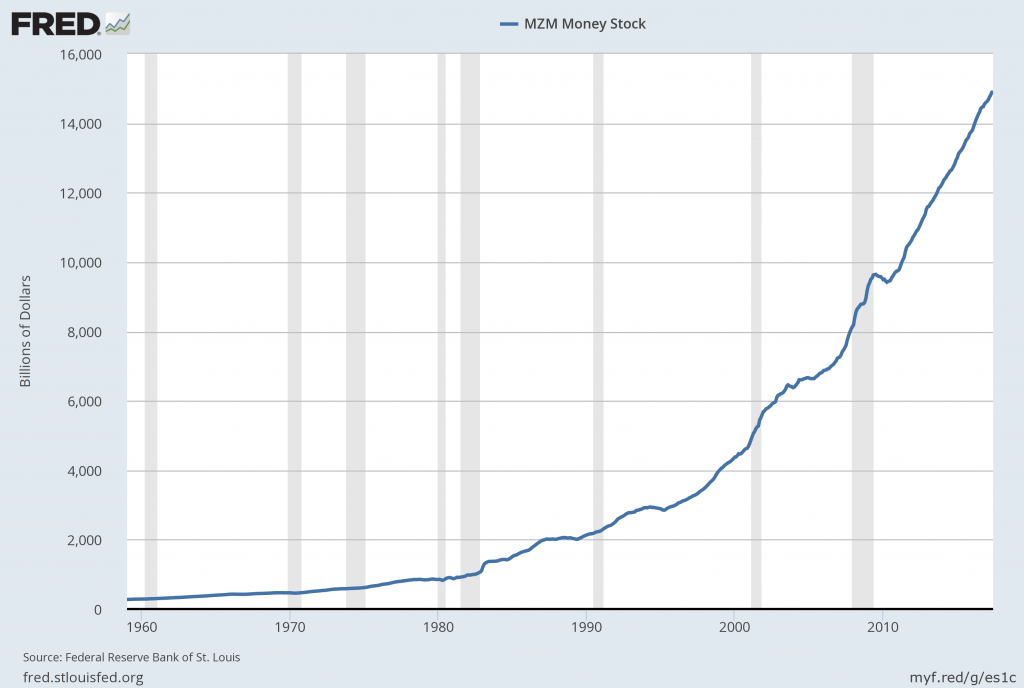

Reallocation of Resources– It helps to distribute resources keeping in view the social and economic conditions of the country. PPF Calculator This financial tool allows one to resolve their queries related to Public Provident Fund account. He was later appointed by the then governor of Georgia Jimmy Carter to manage the state’s budgetary process.

In an effort to minimize costs, some key expenses, such as research and development or long-term strategic projects, may get overlooked. Zero-based budgeting is a structured approach by which businesses can start afresh with resource allocation and reset their cost structure and base. This enables businesses to identify cost reduction opportunities and redirect funds to advance certain strategic priorities. The typical budgeting process is translating a long-range strategy into annual operating plans that are pushed down to finance, lines of business, and operations. This communicates the financial targets across the organization in every line of business.
Zero Based Budgeting Disadvantages
A lazy approach to budgeting will never suffice because a budget can act as an outline and a solid plan to take your business in the right direction. Accounting software enables businesses to better manage their budgets and allocate funds for maximum cost savings. TallyPrime is an accounting software solution that enables you to create budgets for groups, cost centres, and ledger accounts. You can create a hierarchy of budgets with a master budget and sub-budgets underneath it. Traditional budgeting also only analyzes only new expenditures, while ZBB starts from zero and calls for a justification of old, recurring expenses in addition to new expenditures. Zero-based budgeting aims to put the onus on managers to justify expenses and aims to drive value for an organization by optimizing costs and not just revenue.
- It is a bendable management approach which offers a trustworthy justification to reallocate resources through systematic appraisal and explanation of the funding and performance levels of current programs.
- While ZBB can be an effective budgeting strategy, it can also be quite challenging to implement.
- In recent years, the ZBB is making a comeback in the context of fiscal constraints.
- Zero-based budgeting starts from zero, rather than a traditional budget that is based on previous budgets.
- It means all budget requests should be considered freshly for every year with a cost-benefit analysis.
This includes an all-inclusive analysis of the budget proposal and if the managers make irrelevant variations so as to achieve what they want, they are probably exposed. Identifying the decision units that need a justification for zero based budgeting in india every line item of expenditure in the proposed budget. The Zero-based budgeting concept was advocated in 1924 by British budget authority Edward Hilton Young. He advocated complete justification of every item requested in a budget.
Zero-Based Budgeting: What It Is and How to Use It
Zero-based budgeting is the creation of a budget from scratch, without considering the previous year’s budget. Traditional budgets, on the other hand, rely on historical data and perform incremental budgeting. In recent times, major MNCs and private equity firms have been embracing zero-based budgeting because it creates opportunities for cost reduction as well as financial security. Cost interventions may have helped organizations manage through volatility, but the one and done approach doesn’t work in a world of constant change.
In 1960s, ZBB was formally initiated in the Department of Agriculture of the USA. The ZBB as practiced today was developed at Texas Instruments Inc. during 1969 by Peter Pyhrr. In 1970s, Jimmy Carter was elected as American President amid recession. First, the budget planner needs to identify the purpose of budgeting. Next, managers analyze fixed costs and variable costs for relevance, effectiveness, and the scope for saving. It is used commonly in manufacturing units like paper, steel, soaps, medicines, vegetable oils, paints, rubber, and chemicals.
The budget request has to be evaluated thoroughly with its commencement from the zero-base. It ensures real-time income allocation to various business expenses and savings. Irrelevant CostsIrrelevant costs are those that are not useful or are not considered when a company makes a business decision. However, this does not imply that such costs will be irrelevant for an extended period and may become relevant if the business environment or priorities change. For example, if the human resources department doesn’t make much profit for the last few years, it will get less funding for the next year. Reshma Ali has great expertise in mergers & acquisitions, Financial planning, and international company formation and offers advice and knowledge to help businesses achieve their objectives.
This is a difficult task even once a year, which causes some entities to only use the procedure once every few years, or when there are noteworthy changes within the organization. Another substitute is to require the use of zero-base budgeting on a rolling basis through different parts of a company over several years, so that management can deal with fewer such reviews per year. Zero base budgeting needs an enormous amount of analysis, meetings, and reports, all of which requires extra staff to manage the process. Some managers may try to manipulate their budget reports to concentrate expenditures under the most important activities, thus ensuring that their budgets will not be reduced. It can be problematic to control or validate expenditure levels for areas of a business that do not produce „concrete,” tangible results. The operational evaluation authorized by zero-base budgeting requires a significant amount of management time.
Questioning the very need for some of these spends could be a step taken by corporates. It will make them leaner and more profitable when growth starts to return. In 1986, the Indian government adopted this process as a technique for the systematic regulation of the expenditure budget. The way Government budgets allocate resources, has the potential to transform these gender inequalities. In view of this, Gender Budgeting, as a tool for achieving gender mainstreaming, has been propagated.
In other words, it is built around what is needed for the upcoming period, regardless of previous allocations made. The expenditure which is incurred on activities directly related to economic development is called developmental expenditure. Expenditure incurred on education, health care, scientific research, infrastructure etc. Activities are identified as decision packages, and then the latter are ranked in order of priority.

Since there is no reference point if managers want to invest more in marketing, for example, they can. ExpenseAn expense is a cost incurred in completing any transaction by an organization, leading to either revenue generation creation of the asset, change in liability, or raising capital. Zero-based budgeting allows managers to consider how each dollar is allocated, throughout the budgeting cycle. Reducing the possibility of communication failure across several business units. A cost center is a function within an organization that does not directly add to profit but still costs an organization money to operate. Operations management is the administration of business practices to create the highest level of efficiency possible within an organization.
Differences between Traditional Budgeting and Zero Base Budgeting
Traditional Budgeting works on cost accounting principles, thereby, it is more accounting oriented. In the zero-based budget, neither expenses incurred during the previous financial years are considered nor the expenditure of the last financial year used for the coming years. This Budget contains the details of the expenditure in different sectors done by the Government of India. However, the result of this expenditure is not explained in this Budget.
Zero-base budgeting needs that managers recognise alternative ways to implement each activity, as well as the effects of different levels of spending. With these alternatives, the process makes managers consider other ways to operate the business. Contributing to Economic Growth– A country’s economic growth is based on the rate of investment and savings. Therefore, the budgetary plan focuses on preparing adequate resources for investing in the public sector and raise the overall rate of investments and savings. Above all, ZBB allows businesses to identify cost savings, reallocate those savings to more strategic use, and fuel sustainable growth.
Zero-based budgeting process
On the contrary, zero-based budgeting focuses on forming a new economic proposal, whenever the budget is set. As the name says “Zero-based budgeting” is an approach to plan and prepare the budget from the scratch. Zero-based budgeting starts from zero, rather than a traditional budget that is based on previous budgets.
Whereas, each time the budget under zero-based budgeting is created, the activities are re-evaluated and thus started from scratch. A unit makes its budget request by preparing ‘decision packages’ for each activity it undertakes. Zero-based budgeting is a method of budgeting in which all expenses for each new period must be justified. Under zero-based budgeting, no reference was made or considered of previous years.
The revenue deficit and fiscal deficit may exceed the targets specified in the rules only on grounds of national security, calamity and other exceptional grounds to be specified by the Central government. It mandated setting annual targets for the reduction of fiscal deficit and revenue deficit, contingent liabilities and total liabilities. Attaining rapid economic growth is one of the key goals of fiscal policy formulated by the Government of India. Fiscal policy, along with monetary policy, plays a crucial role in managing a country’s economy. The economic and financial policy of the coming year, i.e., taxation proposals, prospects of revenue, spending programme and introduction of new schemes/projects.
Over the past 12 months, many businesses had to deal with the budget pressures and various uncertainties, especially in the supply chain. Businesses had to cut costs just to stay afloat and/or manage their working capital needs to maintain short-term efficiency and boost liquidity. In the wake of the pandemic, companies are shifting towards zero-based budgeting to save vital costs and focus on their strategic priorities. It is more about determining a change that is applied to all such as an increase in spending by 1%. This generic nature doesn’t specify in detail how the activities are tied to the budgets making it confusing to implement. It involves tweaking budgets that were made in the past by making adjustments so they are close to the real expenditures that take place in the business.
